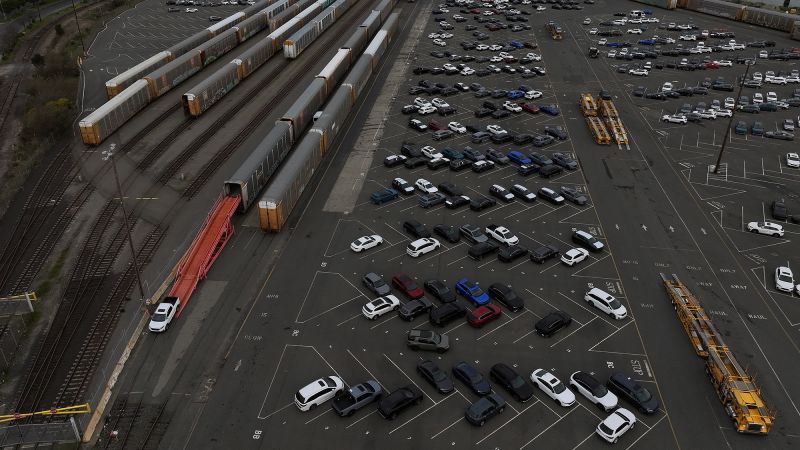President Donald Trump is poised to make a major announcement that could significantly impact the automobile industry. The White House disclosed that Trump is set to reveal tariffs on cars shipped to the United States in an event scheduled for 4 pm ET on Wednesday. The specifics of the tariffs, including the rate and effective date, are yet to be disclosed; the details will be unveiled during the announcement.
Previously, Trump had indicated his intention to announce auto tariffs on April 2, coinciding with the expected release of a reciprocal tariff package. However, recent developments have hinted at an earlier launch specifically targeting the automotive industry. This move comes on the heels of the Big Three U.S. automakers—Stellantis, Ford, and General Motors—successfully securing exemptions to 25% tariffs on all goods from Canada and Mexico earlier this month.
The exempted tariffs allowed duty-free entry for compliant autos under the United States-Mexico-Canada Agreement cUSMCAc. This exemption's expiration on April 2 could signal the introduction of higher tariff rates as part of Trump's speculated "Liberation Day." Industry experts have warned that these tariffs could lead to a significant increase in new car prices, potentially hiking prices by thousands of dollars. Given the intricate supply chains within the industry, even American-made cars rely heavily on components from Mexico and Canada.
The U.S. automotive market operates under the umbrella of longstanding free trade agreements that have blurred national boundaries with parts moving seamlessly across borders. The intricate web of supply chains makes it challenging to delineate between American-made and imported vehicles. Notably, only a handful of vehicles, such as the Tesla Model 3 and Honda Ridgeline, meet the designation of being 75% American-made under the current guidelines, which include Canadian-sourced parts.
The looming auto tariffs have sent ripples through the industry, with stock markets reacting adversely to the news. The potential implications of these tariffs extend beyond consumer prices; automakers might have to rethink their production strategies, potentially shifting manufacturing back to the U.S. to avoid tariff implications. The broader impacts of these tariffs could also lead to a reduction in the variety of vehicle models available in the market.
Industry analysts warn that the tariffs could disrupt supply chains, impact profitability, and potentially lead to job losses within the auto sector. The complexities of the modern automotive industry mean that nearly half of all vehicles sold in the U.S. are imported, emphasizing the interconnectedness of the global auto market. With Trump's aggressive stance on tariffs, tensions with key trading partners like Mexico, Canada, and European nations have escalated, adding further unpredictability to the economic landscape.
In conclusion, Trump's imminent announcement of auto tariffs raises significant uncertainties for the automotive industry, casting a shadow on consumer prices, supply chains, and the overall economic dynamics within the sector. The implications of these tariffs extend far beyond the industry itself, resonating throughout the broader economy and international trade relations.

